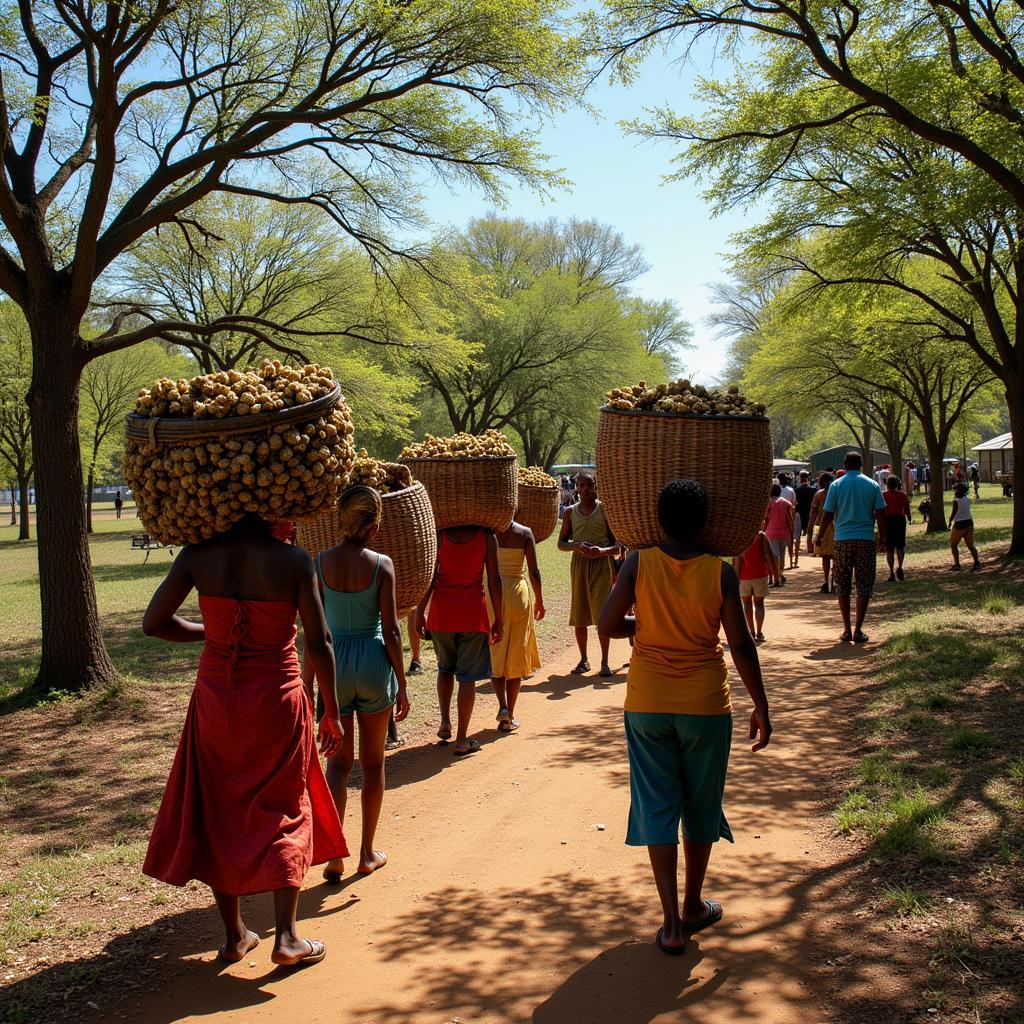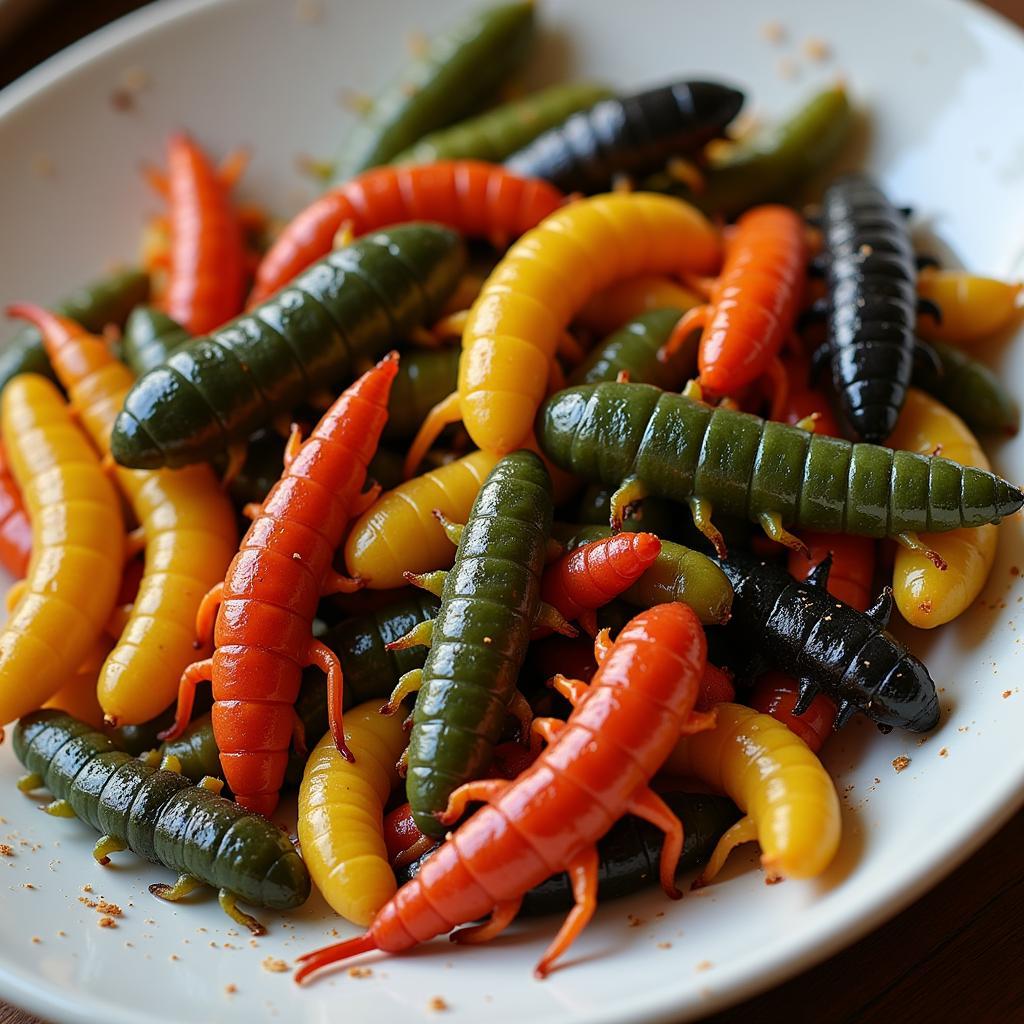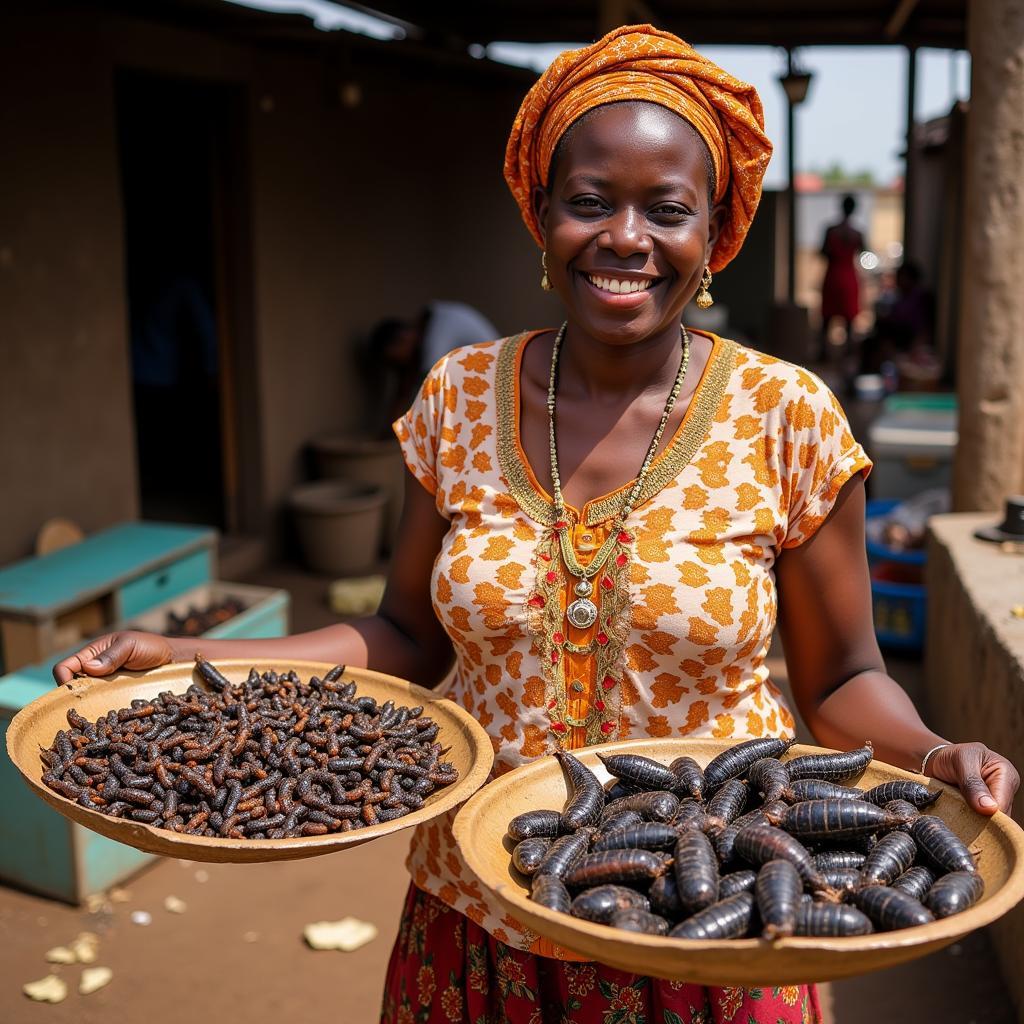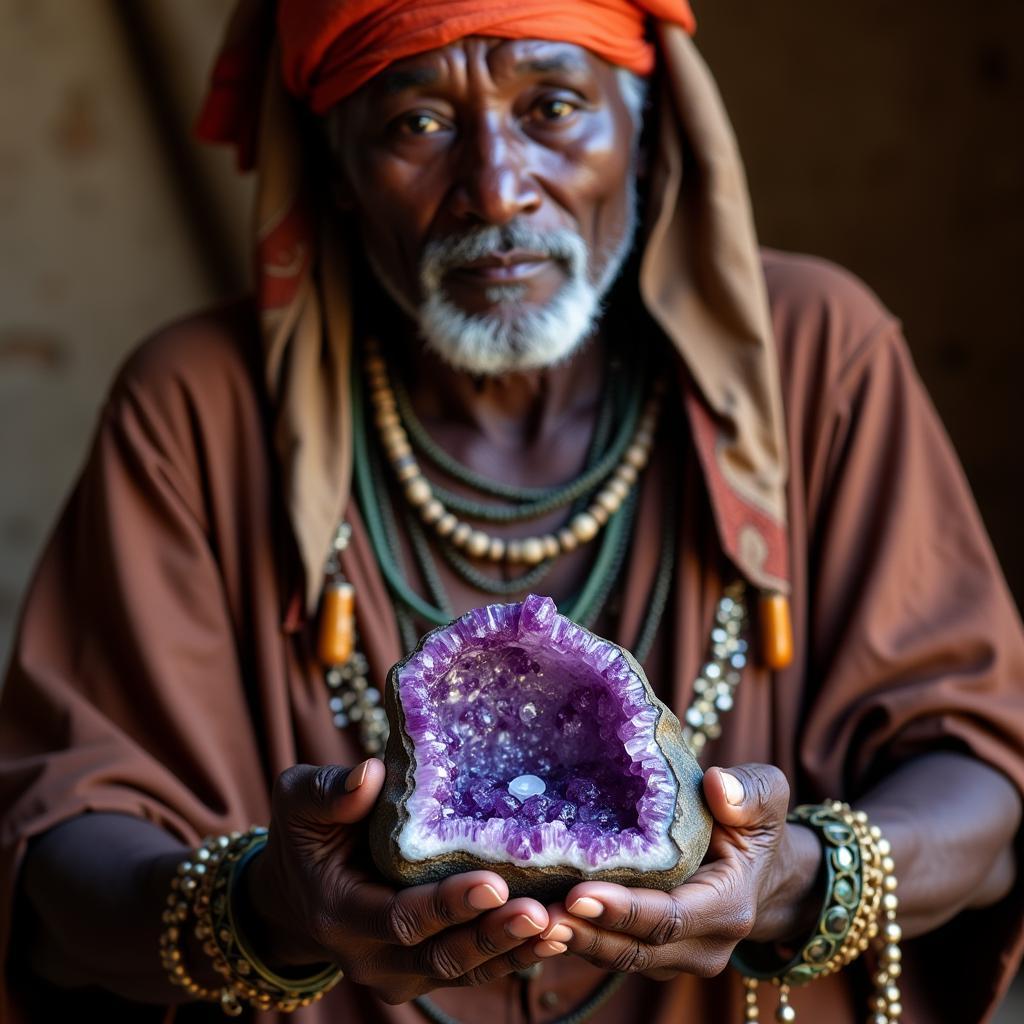A Bite of Adventure: Exploring African Edible Larvae
Africa, a continent rich in culture and biodiversity, offers a unique culinary landscape. Beyond familiar staples, edible insects, particularly larvae, hold a significant place in traditional diets across various regions. These protein-packed delicacies, far from being considered mere survival food, represent a vital part of cultural heritage and a sustainable food source for the future.
Beyond the Plate: Understanding the Role of Edible Larvae in Africa
 Mopane caterpillar harvesting in South Africa
Mopane caterpillar harvesting in South Africa
The consumption of edible larvae in Africa is deeply rooted in tradition and ecological wisdom. For centuries, communities have recognized the nutritional value and abundance of these tiny creatures. From the mopane caterpillar in Southern Africa to the shea butter caterpillar in West Africa, each species plays a unique role in local ecosystems and diets.
A Feast for the Senses: Popular African Edible Larvae
 Different types of edible larvae consumed in Africa
Different types of edible larvae consumed in Africa
Ready to tantalize your taste buds? Here’s a glimpse into some of the most popular edible larvae gracing African plates:
- Mopane Caterpillar: Arguably the most well-known, the mopane caterpillar, found primarily in Southern Africa, boasts a nutty, earthy flavor. Often dried or smoked, it can be enjoyed as a crunchy snack or cooked into stews and sauces.
- Shea Butter Caterpillar: This plump caterpillar, found in West African countries like Burkina Faso and Mali, is prized for its rich, buttery taste, often compared to foie gras. It’s a seasonal delicacy enjoyed roasted, fried, or grilled.
- Palm Weevil Larvae: These large, juicy larvae, relished in Central and West Africa, offer a creamy texture and a slightly sweet flavor reminiscent of coconut. They can be eaten raw, roasted, or fried and are considered a true delicacy.
The Nutritional Powerhouse: Health Benefits of Edible Larvae
 A woman selling various edible larvae at a local African market
A woman selling various edible larvae at a local African market
Don’t let their size fool you; these tiny creatures are nutritional powerhouses. African Edible Larvae are:
- High in Protein: They often surpass beef, chicken, and fish in protein content, making them an excellent source of essential amino acids.
- Rich in Micronutrients: They provide vital vitamins and minerals often lacking in traditional diets, including iron, zinc, and calcium.
- Sustainable and Eco-Friendly: Insect farming requires significantly less land, water, and feed compared to traditional livestock, making it a more sustainable protein source.
A Culinary Adventure Awaits
From crispy snacks to flavorful stews, African edible larvae are surprisingly versatile ingredients. As awareness of sustainable food sources grows, these protein-packed delicacies are poised to gain popularity beyond the African continent. So, the next time you’re feeling adventurous, why not take a bite and discover the unique flavors of Africa’s edible larvae?
FAQ
1. Are edible larvae safe to eat?
Yes, edible larvae are generally safe to eat. They are a traditional food source in many cultures and, when prepared properly, pose no greater health risk than other animal proteins.
2. What do African edible larvae taste like?
The taste varies depending on the species but is often described as nutty, earthy, or buttery. Some even compare the flavor to chicken, nuts, or mushrooms.
3. Where can I find edible larvae outside of Africa?
While not as common, you can find edible larvae online, at specialty food stores, or even at some restaurants specializing in insect cuisine.
4. Are there any cultural considerations when consuming edible larvae?
Yes, it’s essential to be respectful of local customs and traditions when trying edible larvae in Africa. Inquire about appropriate ways to eat them and any associated cultural significance.
5. How can I incorporate edible larvae into my diet?
Start by trying them as a snack or incorporating them into familiar recipes. They can be ground into a powder to add protein to smoothies or baked goods, or used as a substitute for meat in stews and sauces.
Connect with Us
Have more questions about African edible larvae or other aspects of African culture? We’d love to hear from you! Contact us at +255768904061, email us at kaka.mag@gmail.com, or visit us in Mbarali DC Mawindi, Kangaga, Tanzania. Our dedicated team is available 24/7 to assist you.
Explore more about African insects:
- Want to see captivating images of insects found in Africa? Check out our collection of African insects photos.
- Interested in learning about the diverse insect-based cuisine in Africa? Discover more about African insect food.



